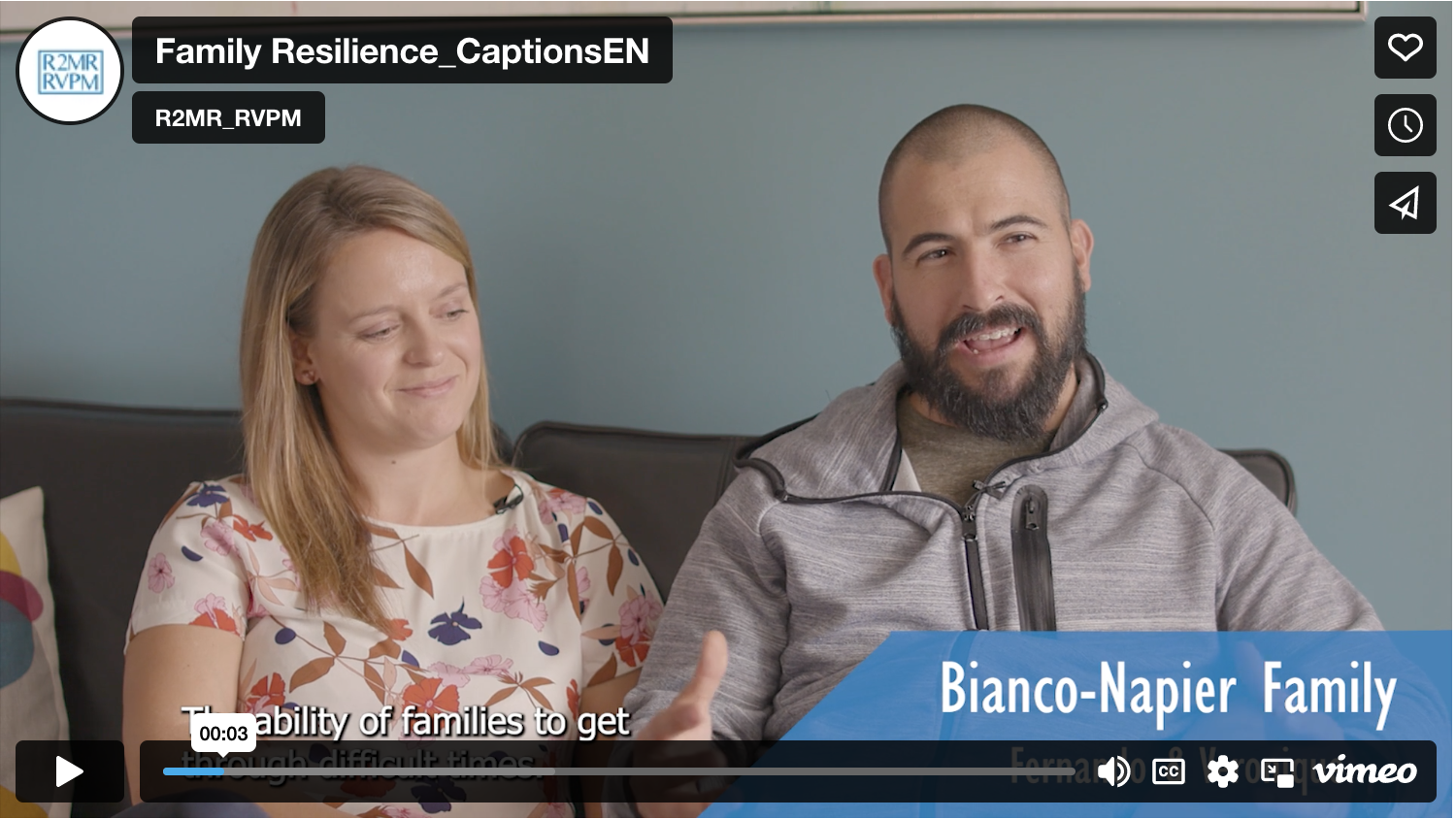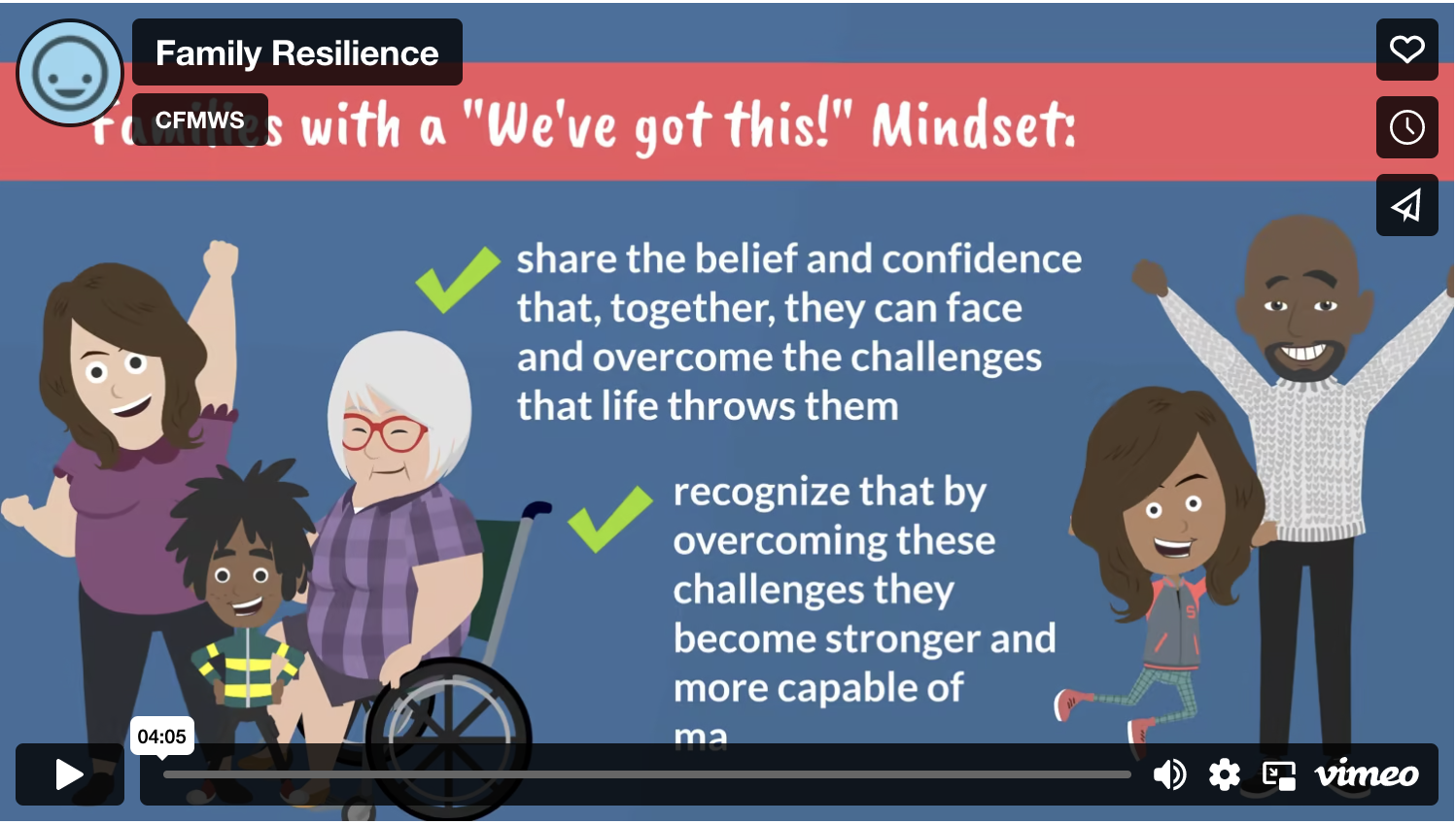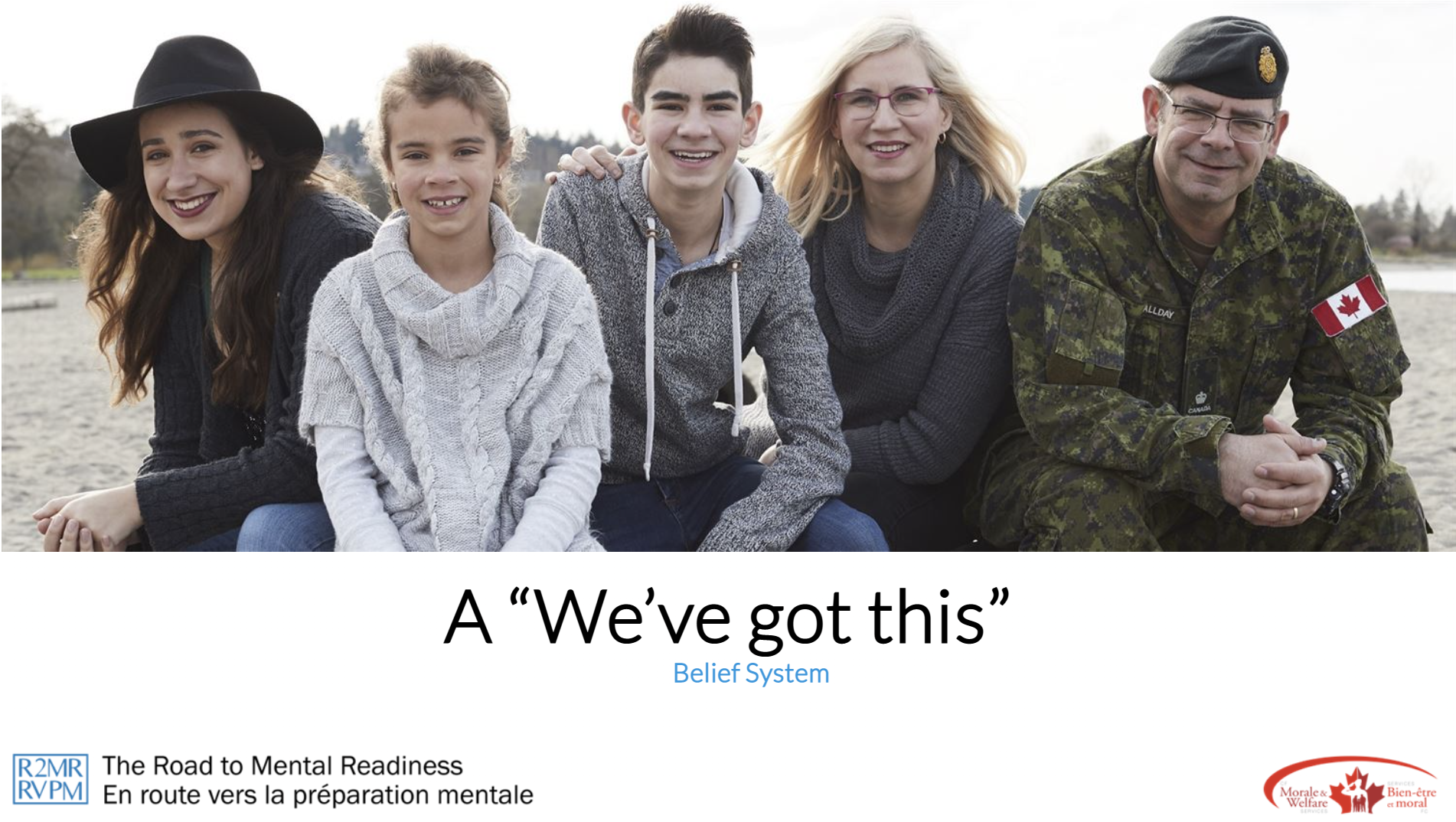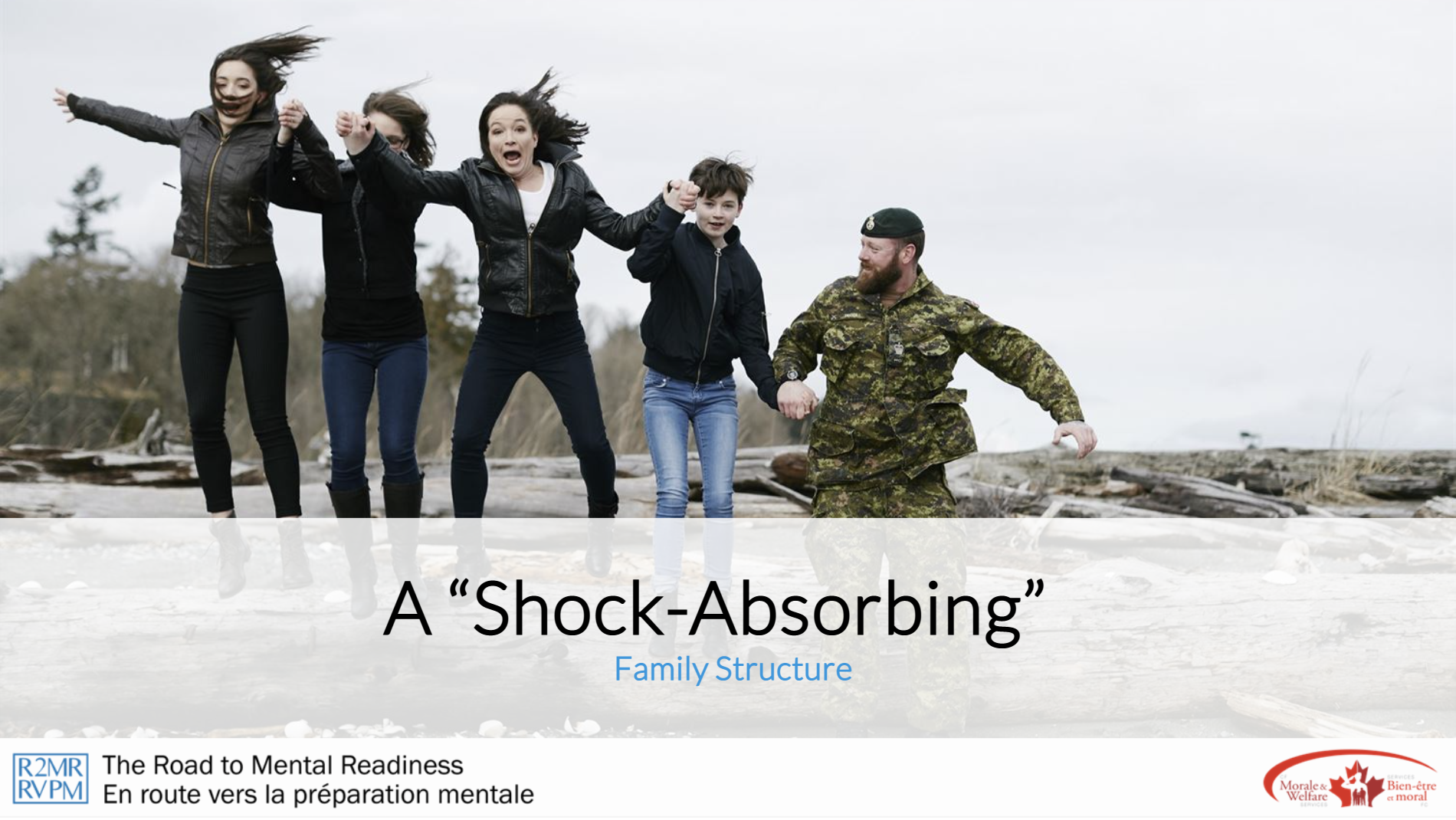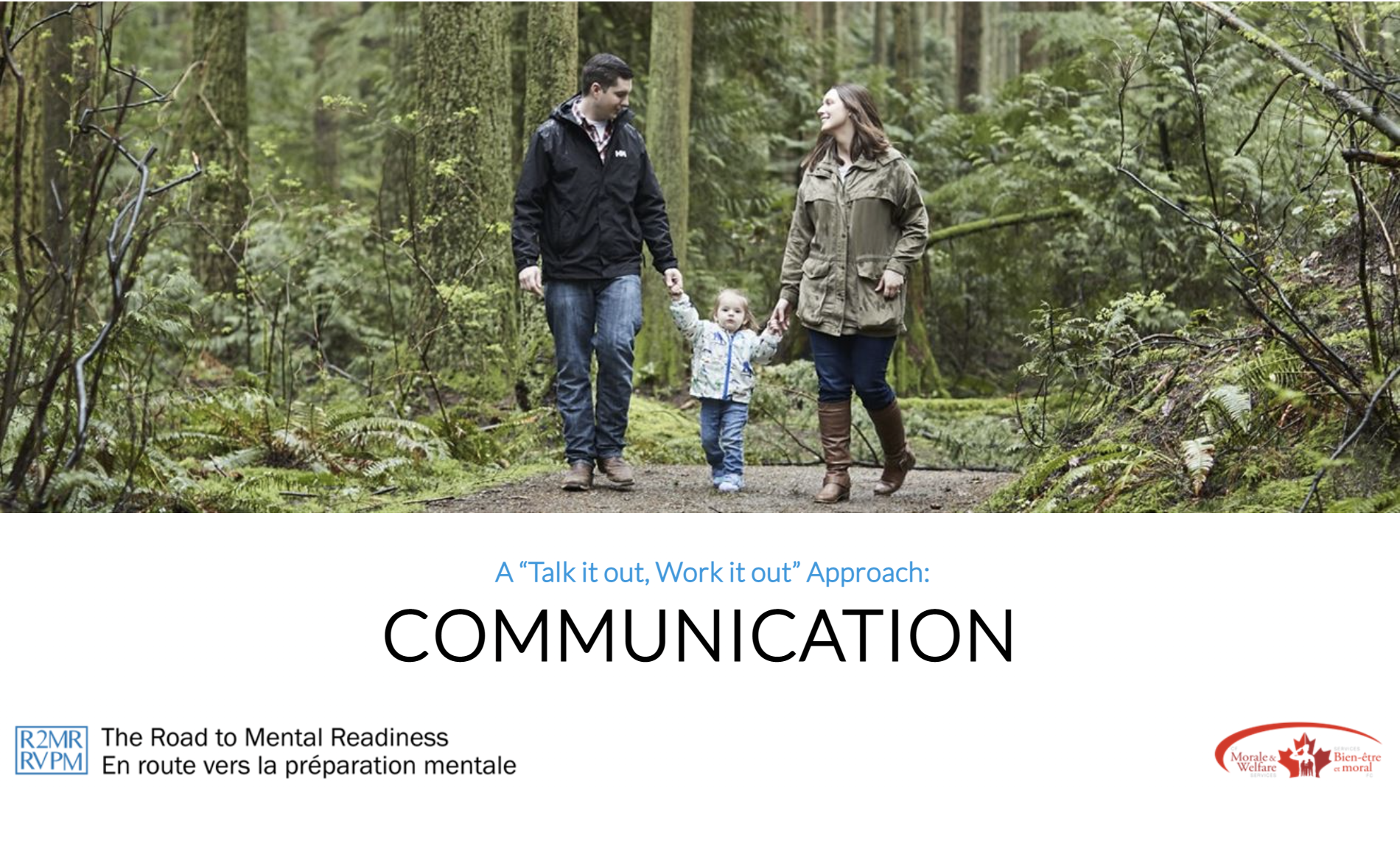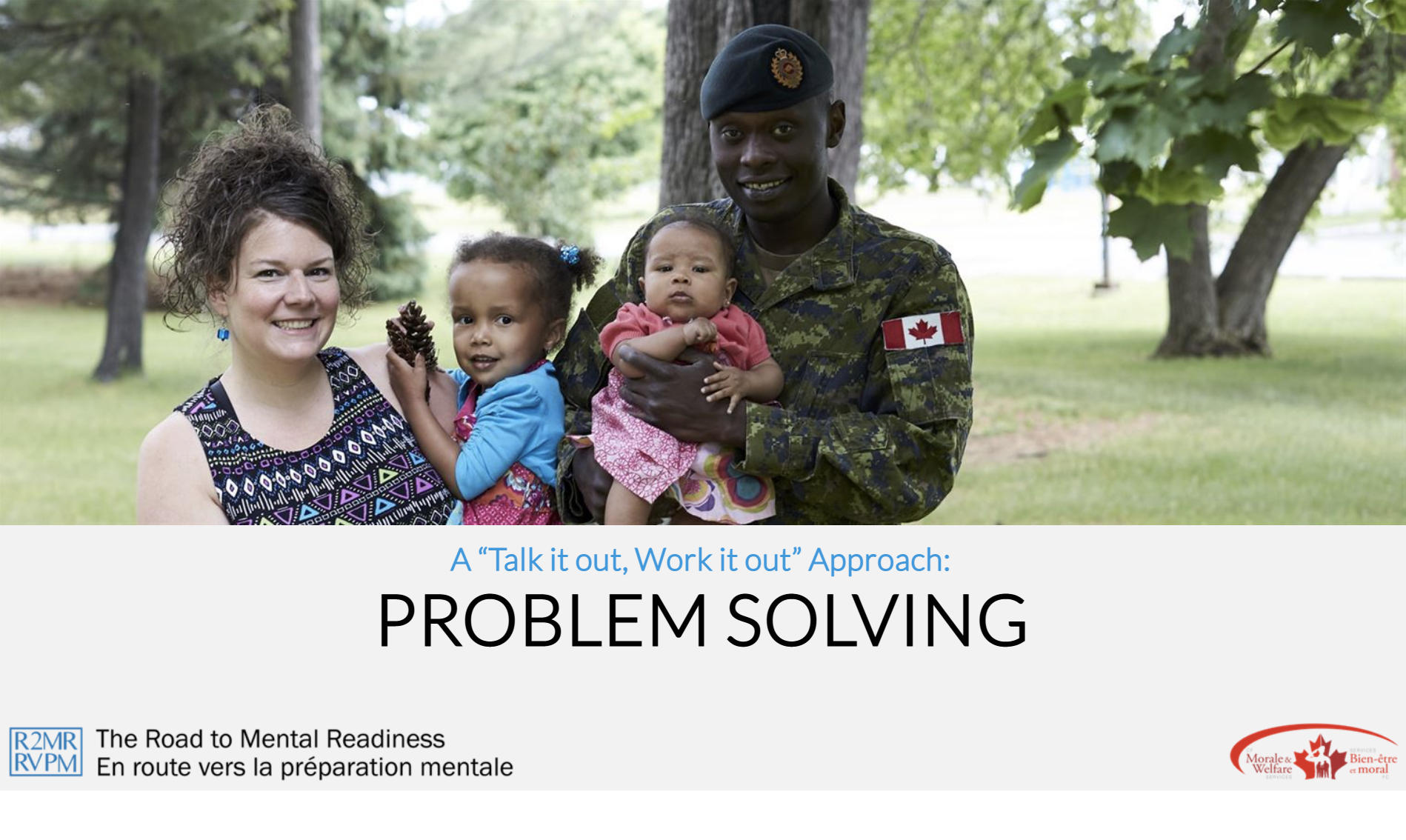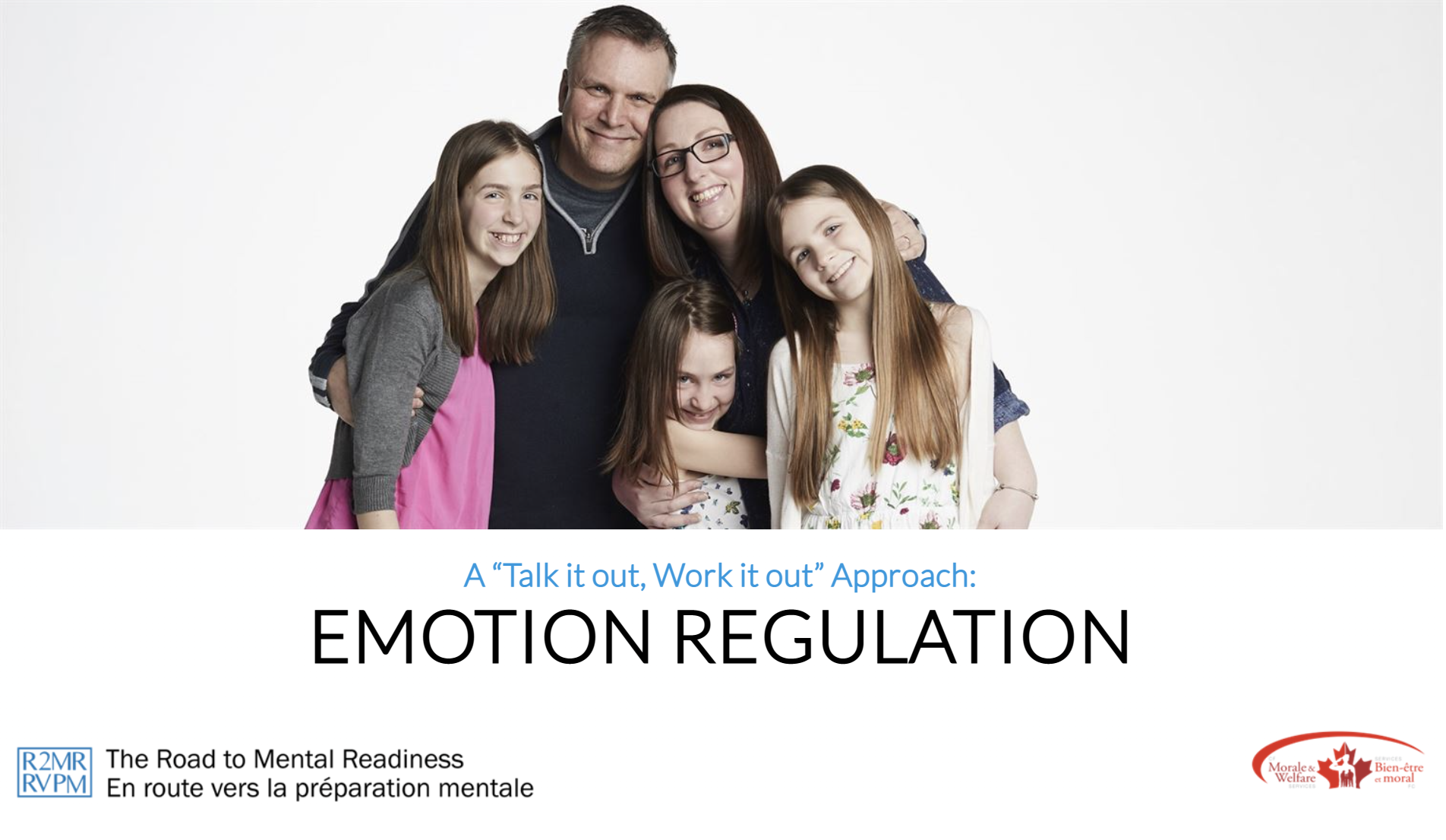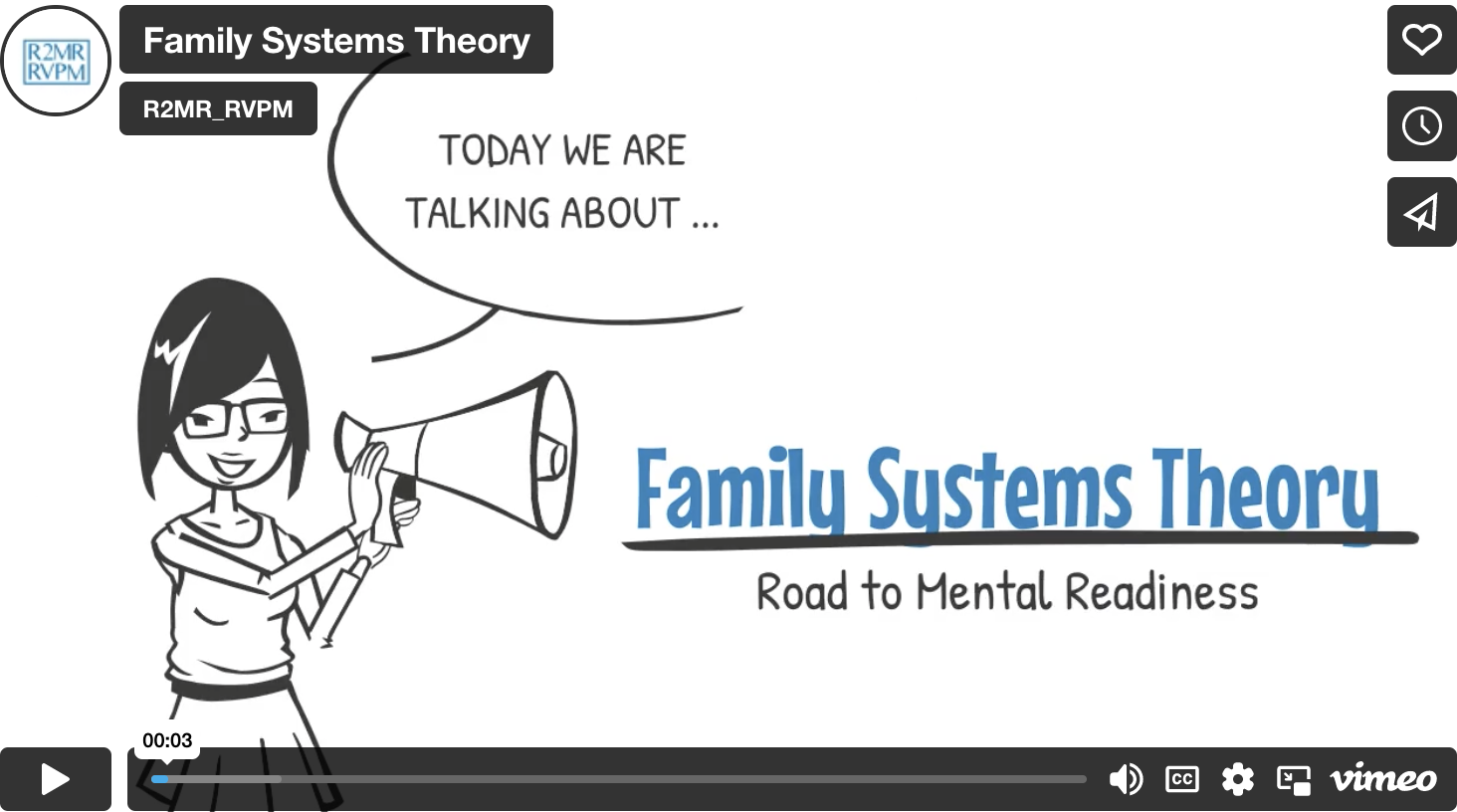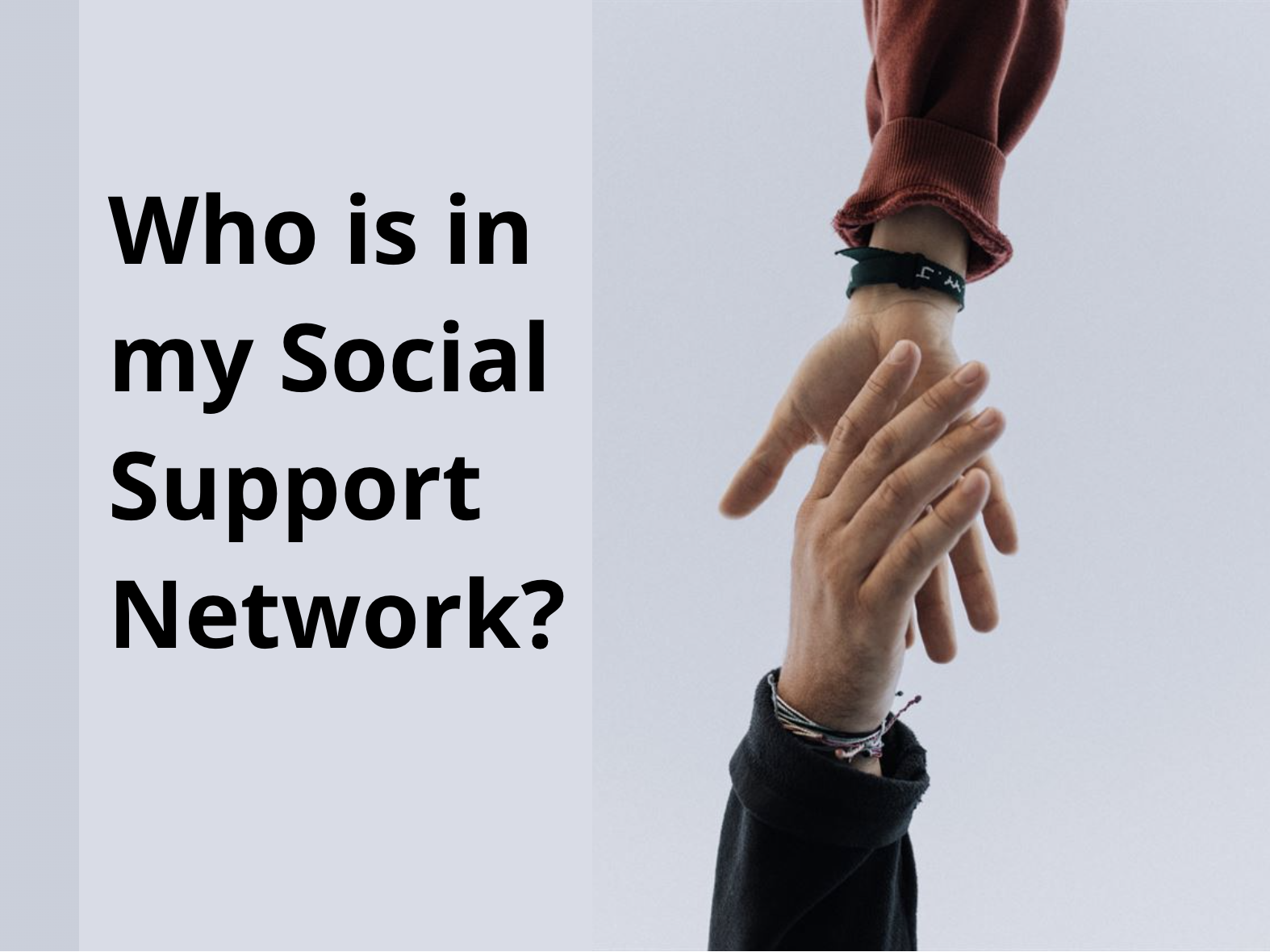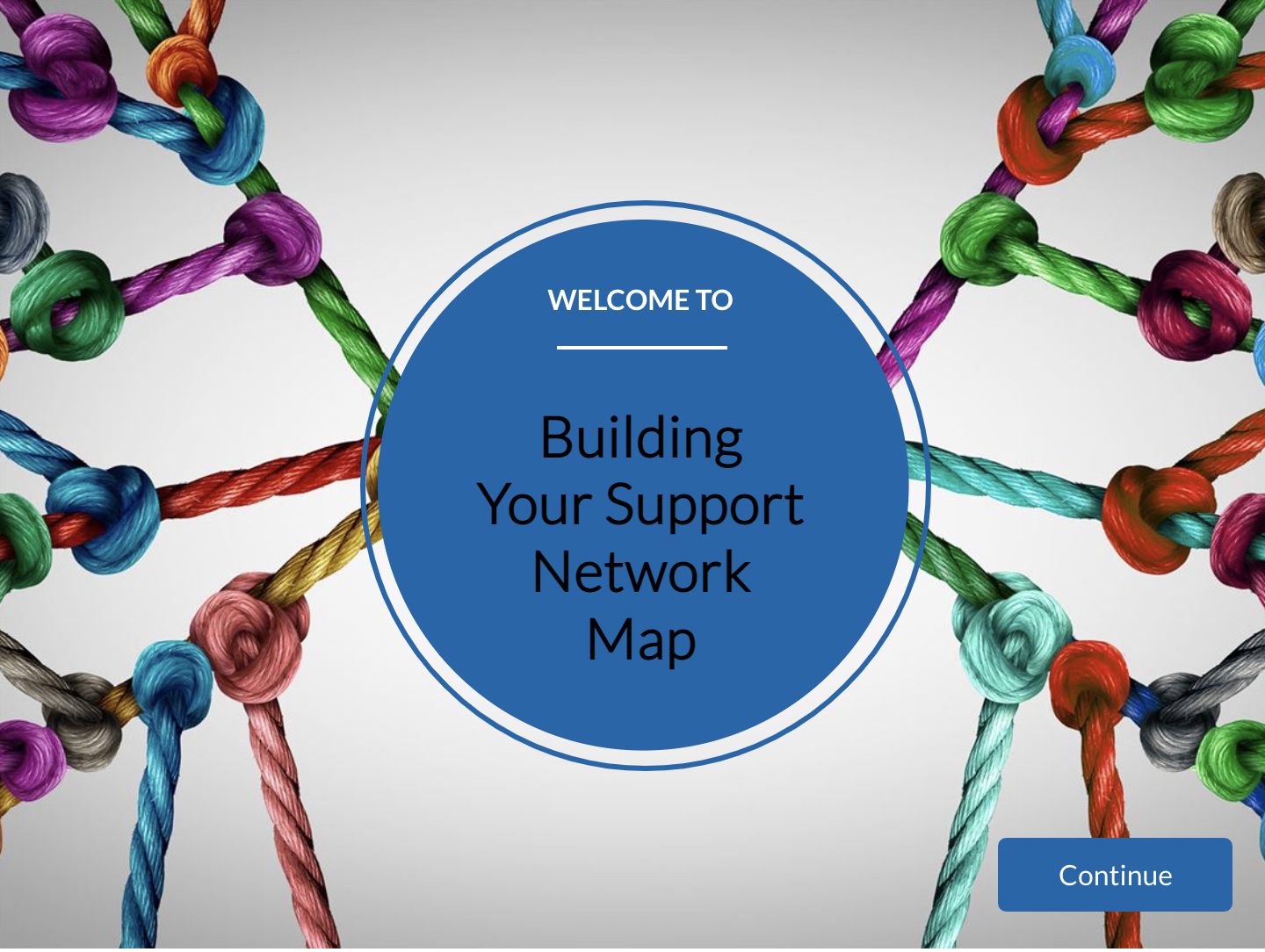Family Resilience
Family resilience * refers to the ability of the entire family to respond positively to adversity and emerge feeling strengthened, more resourceful and more confident. As was so well described by Fernando and Véronique in the video below, family resilience is not about becoming immune to the struggles and daily hassles of life. Rather, it is about equipping your family with the skills, supports and resources that you need to respond effectively to these difficulties and challenges.
Watch this video to hear a military family talk about what family resilience means to them.
Building Family Resilience
What helps make families resilient? Play the video below to learn more about five key processes * that you and your family can use to promote your family resilience:
- A “we’ve got this” belief system
- A “shock absorbing” family structure
- A “talk it out/work it out” approach
- A “by taking care of myself, I am taking care of my family” mindset
- A “we are not alone” mindset
A “We’ve got this” belief system
Estimated time: 5 min
Learning objectives
In this activity you will learn about the importance of adopting a growth mindset, the role of perception in stress, and some tools to help you and your family adopt a positive mindset.
One of the key processes for building your family’s resilience involves creating a belief system where stress and adversity are viewed as growth opportunities or shared challenges rather than as threats. Learn about different strategies and tools you can use to help develop this belief system in the e-learning activity below.
A ‘Shock Absorbing’ Family Structure
Estimated time: 25-45 min
Learning objectives
This activity explores the concepts of flexibility, connectedness and alignment in developing a healthy family structure, and provides you an opportunity to review strategies to help you strengthen each of these areas.
A solid family structure that includes flexibility, connectedness and proper alignment can help families manage stress. Learn more about how families can reinforce their structure to promote resilience in this e-learning activity.
Talk it out, Work it out
Effective communication, collaborative problem-solving and the ability to regulate emotions are core resilience skills that can help families better adapt to their ever-changing environments. While each of these unique skills is important in its own right, an effective “talk it out, work it out” approach combines all of these skill sets to equip families to manage stress.
Learn more about each of these skills and strategies to enhance their use within your family.
Communication
Talk it out, work it out
Problem Solving
Problem Solving
Regulating Emotion
Family Health & Self-care
The health of the family is impacted by the physical and emotional health of each of its members. Why is this? This is because families are more than just a collection of individuals. While each family member is an independent person, they also have an ongoing and mutual impact on other members in their family. What impacts one, impacts all. This is known as Family Systems Theory.
To learn more about this theory, watch this short video.
By considering the family as its own unique system, we can understand why it is so important to strive towards optimal health and well-being not only for our own happiness and quality of life, but also for that of our family. There are various sections on this website dedicated to gaining and maintaining personal well-being, including Understanding Stress, Self-Care, Individual Resilience and Mental Health. Taking the time to work through these modules can help you personally as well as help to ensure the well-being of your family.
Remember that the mindset “by taking care of myself, I am taking care of my family” promotes personal and family resilience.
Family Support
As human beings we all need social support. Put simply, social support means having other people we can turn to in times of need.
There are four key types of support * we can benefit from:
- Emotional support involves sharing life experiences with others and having the experience of feeling understood, cared for and loved. An example of this type of support would include seeking out a close family member or friend to talk through a problem.
- Informational support involves sharing knowledge, suggestions and information to help us address our problems. An example of this type of support would include seeking out community resources for information, such as financial counselling to assist with debt management.
- Instrumental/Practical support involves the provision of concrete tangible aid or services. An example of instrumental support would be asking a friend or family member for help with childcare so that you can have a night out with your spouse/partner or friends.
- Affiliation support involves acceptance and a sense of belonging within a community or group. An example of this type of support would be attending a formal peer support group, such as the Operational Stress Injury Social Support (OSISS) family support program.
Research has repeatedly found that social support provides key benefits for our physical and emotional health. Social support acts as a protective factor (to help protect us from experiencing health problems) as well as a recovery factor (to help us bounce back from problems when they do occur). Social support is a key element of resilience. Developing a “we are not alone” mindset can help you build and maintain your social supports.
For a family to have a strong and healthy social support network, it not only needs to have an adequate number of resources that it can turn to for support, but it also needs to be able to access these supports when required.
Who’s in your social network?
Having an adequate number of supports is important because no one person can meet all of our support needs. At different times and in different situations, the type of support and who provides it to us may change.
Take a moment to generate a list of people in your life who you can access for different support needs.
Accessing your Social Support Network
The best social support network in the world will not help you if you don’t reach out for its support when you need it. Some people find it hard to reach out, ask for and accept support.
Could you really use some time away from the kids, but are reluctant to bother someone to ask them for help with childcare? Do you find yourself worrying that if you talk about some of your problems, others will no longer see you as strong or capable? Do you see yourself as the person who provides support, not the one who needs it? These types of beliefs may be preventing you and your family from developing the “we are not alone” attitude that is so important for fostering resilience.
Friends, family and even community resource personnel benefit from feeling that they have done something positive and helpful for you. In fact, by reaching out to friends and family, you help keep the relationship balanced so they know that they have something of value to offer you, and in turn will be more likely seek support from you when they need it.
Use the activity below to map out the supports you identified in the previous activity, determine the type of support they provide, and how accessible your supports are to you.
Need to expand your social support network?
The Canadian Mental Health Association British Columbia Division has a Social Support Wellness Module that may help you learn more about how much support you currently have access to and ways to expand your network.
